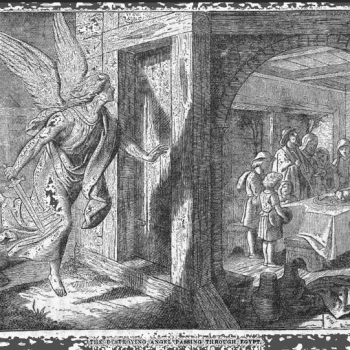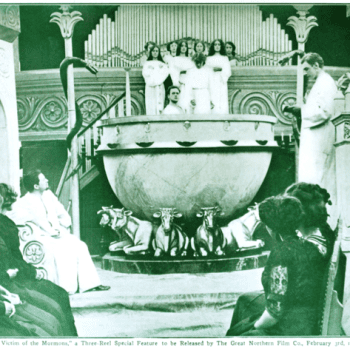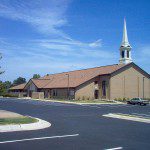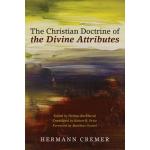
This is an installment of my series of replies to an article by Dr. David Madison: a pastor in the Methodist Church for nine years, who has a PhD in Biblical Studies from Boston University. It’s called, “Things We Wish Jesus Hadn’t Said” (Debunking Christianity, 7-21-19). His words will be in blue below. Dr. Madison makes several “generic” digs at Jesus and Christianity, in the written portion (it details a series of 12 podcasts):
A challenge for Christians: If you’re so sure Jesus existed, then you have some explaining to do. A major frustration is that, while believers are indignant at all the talk about Jesus not existing, they don’t know the issues that fuel the skepticism—and are unwilling to inform themselves.
Yes, I’m up to the “challenge.” No problem at all. I’m not threatened or “scared” by this in the slightest. It’s what I do, as an apologist. The question is whether Dr. Madison is up to interacting with counter-critiques? Or will he act like the voluminous anti-theist atheist polemicist Bob Seidensticker?: who directly challenged me in one of his own comboxes to respond to his innumerable attack-pieces against Christianity and the Bible, and then courageously proceeded to utterly ignore my 35 specific critiques of his claims as of this writing. We shall soon see which course Dr. Madison will decide to take. Anyway, he also states in his post and combox:
[S]o many of the words of Jesus are genuinely shocking. These words aren’t proclaimed much from the pulpit, . . . Hence the folks in the pews have absorbed and adored an idealized Jesus. Christian apologists make their livings refiguring so many of the things Jesus supposedly said.
The gospels are riddled with contradictions and bad theology, and Jesus is so frequently depicted as a cult fanatic—because cult fanatics wrote the gospels. We see Jesus only through their theological filters. I just want to grab hold of Christian heads (standing behind them, with a hand on each ear) and force them to look straight ahead, unflinchingly, at the gospels, and then ask “Tell me what you see!” uncoached by apologist specialists, i.e., priests and pastors, who’ve had a lot of practice making bad texts look good. . . . I DO say, “Deal with the really bad stuff in the gospels.” Are you SURE you’ve not make a big mistake endorsing this particular Lord and Savior? That’s the whole point of this series of Flash Podcasts, because a helluva lot of Christians would agree, right away, that these quotes are bad news—if no one told then that they’ve been attributed to Jesus.
Of course, Dr. Madison — good anti-theist atheist that he is — takes the view that we are not at all sure whether Jesus in fact said anything recorded in the Gospels in the first place. I don’t play that game, because there is no end to it. It’s like trying to pin jello to the wall. The atheist always has their convenient out (when refuted in argument about some biblical text) that Jesus never said it anyway [wink wink and sly patronizing grin], and/or that the biblical text in question was simply added later by dishonest ultra-biased Christian partisans and propagandists. It’s a silly and ultimately intellectually dishonest game, and so I always refuse to play it with atheists or anyone else, because there is no way to “win” with such an absurdly stacked, purely subjective deck.
In my defense of biblical texts, I start with the assumption that the manuscripts we have are quite sufficient for us to know what is in the Bible (believe it or not). Going on from there, I simply defend particular [supposedly “difficult”] texts, and note with appropriate argumentation, that “here, the Bible teaches so-and-so,” etc. I deal with the texts as they exist. I don’t get into the endlessly arbitrary, subjective games that atheists and theologically liberal biblical skeptics play with the texts, in their self-serving textual criticism.
Dr. Madison himself (fortunately) grants my outlook in terms of practical “x vs. y” debate purposes: “For the sake of argument, I’m willing to say, okay, Jesus was real and, yes, we have gospels that tell the story.” And in the combox: “So, we can go along with their insistence that he did exist. We’ll play on their field, i.e., the gospels.”
Good! So we shall examine his cherry-picked texts and see whether his interpretations of them can stand up to scrutiny. He is issuing challenges, and I as an apologist will be dishing a bunch of my own right back to him. Two can play this game. I will be dealing honestly with his challenges. Will he return the favor, and engage in serious and substantive dialogue? Again, we’ll soon know what his reaction will be. A true dialogue is of a confident, inquisitive, “nothing to fear and everything to gain” back-and-forth and interactive nature, not merely “ships passing in the night” or what I call “mutual monologue.”
*****
Dr. Madison’s third podcast is entitled, “On Matthew 24:37-39, on Jesus’ prediction of suffering—as at the time of Noah—when the Son of Man comes.” Here is the text:
Matthew 24:37-39 (RSV) As were the days of Noah, so will be the coming of the Son of man. [38] For as in those days before the flood they were eating and drinking, marrying and giving in marriage, until the day when Noah entered the ark, [39] and they did not know until the flood came and swept them all away, so will be the coming of the Son of man.
Eating and drinking, marrying, and giving in marriage, are all that bad?
Of course they’re not bad at all. Dr. Madison completely misses the point. No one is judged for doing those things. Jesus is simply saying that people were going about their daily business and doing all the usual things of life, not expecting judgment, and yet all of a sudden it swept upon them. Hence, Barnes’ Notes on the Bible:
The things mentioned here denote attention to the affairs of this life rather than to what was coming on them. It does not mean that these things were wrong, but only that such was their actual employment, and that they were regardless of what was coming upon them.
And, Expositor’s Greek Testament: “The idea rather seems to be that all things went on as usual, as if nothing were going to happen.’
Jesus may have had the somewhat sarcastic and cynical Ecclesiastes 8:15 in mind:
And I commend enjoyment, for man has no good thing under the sun but to eat and drink, and enjoy himself, for this will go with him in his toil through the days of life which God gives him under the sun.
The notion of the Second Coming being sudden and unexpected is repeatedly reinforced in context:
Matthew 24:36 . . . of that day and hour no one knows . . .
Matthew 24:42 Watch therefore, for you do not know on what day your Lord is coming.
Matthew 24:44 Therefore you also must be ready; for the Son of man is coming at an hour you do not expect.
Matthew 24:50 the master of that servant will come on a day when he does not expect him and at an hour he does not know,
The Bible never teaches that eating and drinking and marrying per se are bad. Its ridiculous to believe otherwise, and to think these words imply the contrary. They do not.
This is comic book religion. A hero flying from the sky, to make everything better? Really? . . . But this is silly theology. It’s bad theology.
Why would the very notion of a Second Coming, where the wicked are judged and the righteous rewarded be either “comic book” or “silly” or “bad”? Atheists always say they want God to appear and make things right (since they seem to blame Him for anything bad in the world). Dr. Madison complains in the podcast that God should have done this before now and mocks him ads a “procrastinator.”
It’s rather inconsistent and unfair to state on the one hand that God ought to have tangibly appeared in the past, and then turn around and say that if indeed God appears in the future, that it is, on the other hand, “comic book” or “silly” or “bad”. If it was right thing to do in the past, likewise, it is in the future. He can’t have it both ways. His beef is simply with God’s timing.
This thoroughly undermines the concept of the good Jesus, doesn’t it? In Matthew, Jesus has promised that most of the human race will be killed off when he arrives. He compares it to the time of Noah. Noah is the story of genocide.
What Dr. Madison calls “genocide” Christians call judgment. God is the judge of the world and will judge every human being, based on what they have believed and done. If — again — the very notion of righteous judgment and justice is such a terrible thing, then why doesn’t Dr. Madison endorse anarchy? For, after all, we have human judges and laws, which, if broken, cause penalties to be given to human beings. If one human being can do that to another, and we proclaim it “just” and “good” why is it so incomprehensible that God, the Creator of all men, would judge them? It’s not.
This is what Jesus will do? Have everyone but the folks in the Jesus cult be killed off?
But that’s not what He said. He didn’t say, “As were the days of Noah, everyone but eight people will be killed [or damned].” This is a figment of Dr. Madison’s imagination. Jesus wasn’t comparing the extent of judgment, but rather, the unexpected suddenness of it in both cases. This is quite clear in context, as I showed above. Jesus said, “As were the days of Noah, so will be the coming of the Son of man”: as opposed to “so will be the judgment of the Son of man.”
In the next chapter we have the great scene of the separation of the sheep and goats at the last judgment (Matthew 25:31-46). Jesus never says that the sheep are just eight people out of the entire earth (or any similar such small number). No indication in this text is given of relative numbers of the saved and the damned. In two of His parables nearby, however, He does give indication. And it is assuredly not as Dr. Madison foolishly asserts.
In the parable of the ten maidens with lamps (Matthew 25:1-13), five were foolish and were damned (“the door was shut . . . I do not know you”: 25:10, 12) and five were wise and received eternal life (“went in with him to the marriage feast”: 25:10). That’s hardly a 99.99999999% damned scenario, is it? It’s a 50-50 proposition.
The parable of the talents follows (25:14-30). Here, there are three servants, who are given five talents, two talents, and one talent [a form of money], respectively. The ones who are saved are the first two (“enter into the joy of your master”: 25:21, 23), while the servant with one talent, who did nothing with it, was damned (“cast the worthless servant into the outer darkness”: 25:30).
So this parable suggests a 67% rate of final salvation and a 33% rate of damnation. That’s even further away from a 99.99999999% damned scenario. Thus, the very thing that Dr. Madison brings to the table in an effort to condemn Jesus as a cruel taskmaster, wanting to send virtually everyone to hell, blows up in his face. Could he not read the next chapter, to see the fuller context? Would that have put him out?
Both Paul and Jesus were wrong. They were dead wrong. These predictions were not fulfilled. . . . Paul was quite confident he was gonna be among those who would meet Jesus in the sky.
1 Thessalonians 4:14-17 For since we believe that Jesus died and rose again, even so, through Jesus, God will bring with him those who have fallen asleep. [15] For this we declare to you by the word of the Lord, that we who are alive, who are left until the coming of the Lord, shall not precede those who have fallen asleep. [16] For the Lord himself will descend from heaven with a cry of command, with the archangel’s call, and with the sound of the trumpet of God. And the dead in Christ will rise first; [17] then we who are alive, who are left, shall be caught up together with them in the clouds to meet the Lord in the air; and so we shall always be with the Lord.
Paul was referring to the people alive when the Second Coming occurred. He did not teach when it would occur, since Jesus had instructed His disciples in a post-Resurrection appearance that they can’t and shouldn’t know when this momentous event would happen:
Acts 1:6-7 [written by Luke] So when they had come together, they asked him, “Lord, will you at this time restore the kingdom to Israel?” [7] He said to them, “It is not for you to know times or seasons which the Father has fixed by his own authority.
The Apostle Paul reflects this “eschatological agnosticism” in his next chapter:
1 Thessalonians 5:1-3 But as to the times and the seasons, brethren, you have no need to have anything written to you. [2] For you yourselves know well that the day of the Lord will come like a thief in the night. [3] When people say, “There is peace and security,” then sudden destruction will come upon them as travail comes upon a woman with child, and there will be no escape.
Cambridge Bible for Schools and Colleges thus comments on 1 Thessalonians 4:15:
that we which are alive and remain unto the coming of the Lord] This should be: we that are alive, that remain (or survive) unto the coming of the Lord. The second designation qualifies the first,—“those (I mean) who survive till the Lord comes.” St Paul did not count on any very near approach of the second Advent: comp. 2 Thessalonians 2:1-2. At the same time, his language implies the possibility of the great event taking place within his lifetime, or that of the present generation. This remained an open question, or rather a matter on which questioning was forbidden (see Acts 1:7; Matthew 24:36). “Concerning the times and seasons” nothing was definitely known (ch. 1 Thessalonians 5:1, see note). The Apostles “knew in part” and “prophesied in part” (1 Corinthians 13:12); and until further light came, it was natural for the Church, ever sighing “Come Lord Jesus, come quickly!” to speak as St Paul does here. The same “we” occurs in this connection in 1 Corinthians 15:51-52.
Matthew 24:34 Truly, I say to you, this generation will not pass away till all these things take place.
Mark 13:1-4 And as he came out of the temple, one of his disciples said to him, “Look, Teacher, what wonderful stones and what wonderful buildings!” [2] And Jesus said to him, “Do you see these great buildings? There will not be left here one stone upon another, that will not be thrown down.” [3] And as he sat on the Mount of Olives opposite the temple, Peter and James and John and Andrew asked him privately, [4] “Tell us, when will this be, and what will be the sign when these things are all to be accomplished?”
Jesus said it would happen “before this generation passes away.”
This is an old chestnut of anti-theist atheist polemics. A plausible explanation (where Jesus would be referring both to His hearers’ generation and the end times) is explicated by Glenn Miller at the wonderful Christian Thinktank site:
[W]hen we notice the structure of the ending in Matthew and Mark, we see how some of the items lay out.
The ending has four points:
- The lesson of the fig tree (Mt 24.32-33; Mk 13.28-29; Lk 21.29-31) [e.g. “Even so, when you see these things happening, you know that it is near, right at the door.”]
- The “this generation” saying (Mt 24.34; Mk 13.30; Lk 21.32)
- The “heaven and earth will pass away” saying (Mt 24.35; Mk 13.31; Lk 21.33)
- The “no one knows the hour” saying (Mt 24.36; Mk 13.31; not in Luke)
Now, the Lesson of the fig tree (Point 1) can only be a reference to the destruction of the Temple/City. It draws a distinction between “all these things” and “it is near”–all these things cannot logically then contain the 2nd Advent [which is the “it” in “it is near”-cf. D.A.Carson, EBC, in. loc.; and William Lane in NICNT (Mark):478: “They (all these things) cannot refer to the celestial upheavals described in verses 24-25 which are inseparable from the parousia (verse 26) and the gathering of the elect (verse 27). These events represent the end and cannot constitute a preliminary sign of something else.”]
With this “end” of the end-time continuum being identified in Point 1 (as the “these things” question of the disciples), Jesus then solemnly announces WHEN this ‘beginning of the end-times’ will occur–within that generation (Point 2). With this, He has answered the initial question of the ‘these things’–the immediate historical context of the question of the destruction of the temple.
He then turns (in point 3 above) to describe the “other end” of the end-times continuum–the destruction of the universe (cf. 2 Peter 2.10: But the day of the Lord will come like a thief. The heavens will disappear with a roar; the elements will be destroyed by fire, and the earth and everything in it will be laid bare.). Here Jesus is pointing back to those descriptions of the very end, as in Mt 24.29: “Immediately after the distress of those days “`the sun will be darkened, and the moon will not give its light; the stars will fall from the sky, and the heavenly bodies will be shaken.’ and Lk 21.25f: On the earth, nations will be in anguish and perplexity at the roaring and tossing of the sea. 26 Men will faint from terror, apprehensive of what is coming on the world, for the heavenly bodies will be shaken. He points out that the Great End will be certain, as the continuance of His word is certain (yes!).
And then we have Point 4–the comment that no one but the Father knows the time of the Very-End. [The subsequent parables by Matt in 24.42ff and Luke in 12.39ff, which use the ‘thief’ image, connect this piece–via the 2 Peter quote above–with the Great-End, and NOT with the destruction of the Temple.]
So we have a reasonable structure for the ending sequence-(Point 1) pay attention to the beginning of signs; (Point 2) some of you will definitely see these beginnings; (Point 3) the Big-End pointed to by these signs will surely come; and (Point 4) but none of you can know when (with the implications that are immediately drawn in several of the texts to watchfulness, faithfulness, and industry.)
Thus, [F.F.] Bruce summarizes the same conclusion reached here . . .:
Jesus, as in Mark, foretells how not one stone of the temple will be left standing on another, and the disciples say, ‘Tell us, (a) when will these things be, and (b) what will be the sign of your coming and of the close of the age?’ (Matt. 24:3). Then, at the end of the following discourse, Jesus answers their twofold question by saying that (a) ‘this generation will not pass away till all these things take place (Mtt 24.34) while, (b) with regard to his coming and ‘the close of the age’, he tells them that ‘of that day and hour no one knows…’ [Hard Sayings of Jesus, IVP, 1983, 229-230]
This would yield a very nice Hebraic parallelism:
(A) Pay attention to my words–they come before (pre-announce) these things–the beginning of the end-times (destruction of Temple)
(B) When will it occur?–You know when, within your generation
(A’) Pay attention to my words–they outlast that day–the ending of the end-times
(B’) When will it occur?–No one knows when (except the Father)
(“On…was Jesus mistaken about this 2nd Coming?”: 10-22-96)
For related in-depth analysis of this general subject matter, see my papers:
“The Last Days”: Meaning in Hebrew, Biblical Thought
***
Photo credit: geralt (9-3-17) [Pixabay / Pixabay License]
***
















